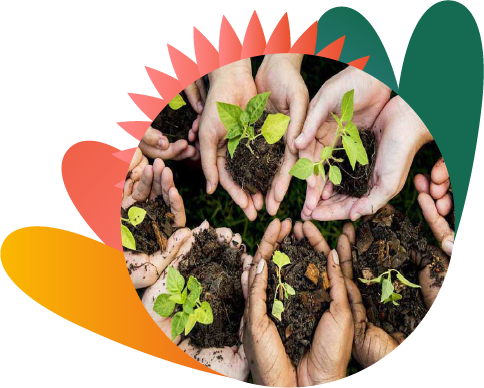ECOSOC at 80: Renewing Multilateralism in an Age of Global Uncertainty
On 23 January, the United Nations Economic and Social Council (ECOSOC) convened a commemorative session…
The World Food Forum (WFF) held its second flagship event between 16 – 20 October at FAO Headquarters in Rome, Italy. The WFF is a multistakeholder platform that works with FAO to run three concurrent forums, the Global Youth Forum, the FAO Science and Innovation Forum, and the FAO Hand-in-Hand Investment Forum. The theme for the 2023 year was Food Action Accelerates Climate Action.

The Global Youth Forum has a thematic focus on food systems transformation and puts the youth of the world, women, and indigenous peoples at the centre of discussions throughout the week. Despite being a very new multistakeholder platform, WFF has made extraordinary progress towards elevating the topics of innovation and technology to become central to building more resilient, climate-adapted food systems for future generations.
In partnership with the Xtreme Tech Challenge, WFF runs a Start-Up Innovation Award each year for young emerging entrepreneurs who are bringing new products and services to agrifood systems. This year’s winner for better production was Zebra CropBank which is building a post-harvest services platform for farmers to store, manage and monetize their produce.
Alongside the WFF, FAO ran its annual Science and Innovation Forum under the theme Science and Innovation for Climate Action and focussed on promoting discussions on specific and concrete actions to harness science and innovation for climate action and agrifood systems transformation. The full programming for the SIF can be downloaded here and anyone interested in watching the sessions online can do so by following this link.
The final component of the week was the FAO Hand-in-Hand Investment Forum. This is part of the global effort in the Hand-in-Hand initiative. Under the leadership of the Director-General of FAO, it places a high priority on agri-food value chain investments in countries that are furthest behind on SDG2. The purpose of the forum is to bring together countries, private sector investors, development banks, the World Bank, the International Fund for Agricultural Development, and other organisations from the international donor community, along with FAO to examine opportunities to scale these critical and much needed value chain investments.
This year 31 countries participated in the 2023 Investment Forum, in addition to two regional initiatives. Working closely with FAOs technical team, these countries identified priority commodities, value chains, and investments that are key to their future development and food security outcomes.
We are pleased to report that this year’s WFF attracted a PSM delegation of 92 people who participated in all three Forums across the week. We would like to sincerely thank everyone who participated in WFF this year and demonstrated the role the private sector plays in advancing youth in agri-food systems; science, innovation, and technology; and the critical role of investing in value chains to eliminate hunger and advance SGD2.
Key highlights for the private sector at this year’s WFF included 6 Bilateral meetings with FAO Directors, Member States and International Finance Institutions as well as private sector scientists being represented throughout the FAO Science and Innovation Forum with 8 of our delegates acting as speakers or panellists during sessions. PSM members also held three separate Side Events in the Global Youth Forum and we would like to thank all our members who spoke on behalf of the private sector and everyone who attended the events. PSM members also held in excess of 50 bilateral dialogues with countries participating in the Investment Forum to discuss opportunities to collaborate and develop partnerships to advance directing investments into these countries and value chains where it is most needed.